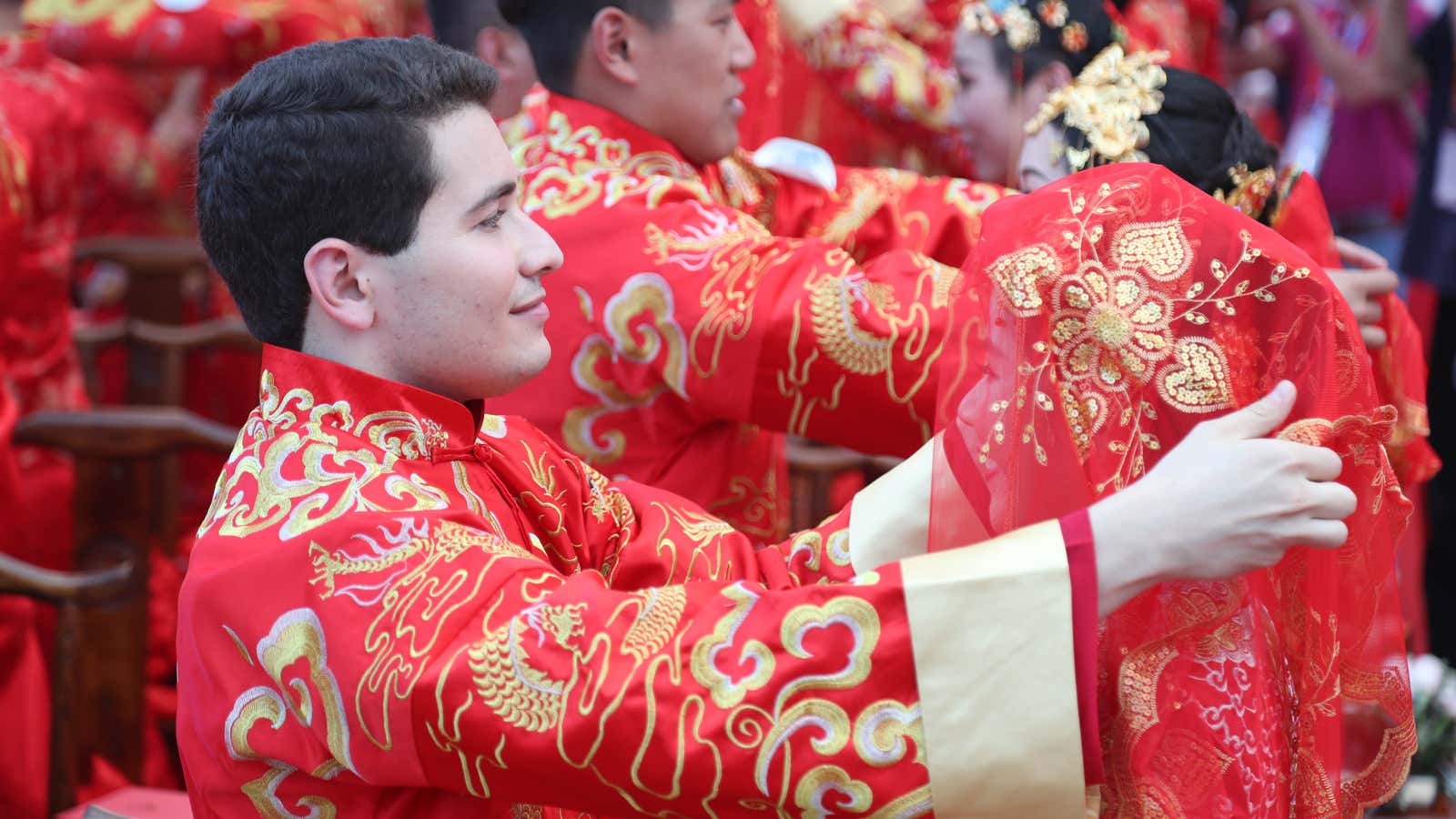Chinese e-commerce giant Alibaba is expanding globally, with R&D centers planned all over the world and investments in e-commerce companies across India and Southeast Asia. But it’s also bringing more foreigners into its ranks in China.
Since 2016 the company has been running the Alibaba Global Leadership Academy (AGLA), a management training program for overseas nationals. Over the course of one year, over a dozen individuals from various countries are placed in two divisions at Alibaba in its main Hangzhou offices, before receiving in a permanent position within the company. This year’s program, which began in July, has 20 members selected from an applicant pool of over 6,000.
It’s part of an effort to inject fresh ideas into the 18-year-old company. Inevitably, there are times when cultures clash, according to Brian Wong, vice president of global initiatives at Alibaba and AGLA’s leader.
For one thing, the campus at Alibaba’s headquarters is relatively bare-bones compared to western tech companies of equal size and stature. Employees work at ordinary cubicles and at shared desks—not bean bag chairs or egg-shaped pods. They can eat at one of four cafeterias that serve inexpensive Chinese food. Other food options include branch of a mid-range chain restaurant serving local Hangzhou cuisine, two Costa Coffees, and a Starbucks. The campus gym is small and contains only a few simple machines. There’s a hair salon on campus, as well as a masseuse—though massage parlors can be found on nearly every street in urban China.
“If you’re comparing it to Google or Facebook, you’re not going to think this is impressive,” he says. “Sometimes I wish it was like Google because I’d love to have a burrito one day and sushi the next day. But we’re operating in China and this is already pretty damn good by Chinese standards,” he adds.
Staff also take mandatory Chinese lessons and make frequent trips across the country to visit Alibaba facilities, vendor partners, and Chinese landmarks. Wong says that classroom work and field research supplement the day-to-day work by providing important cultural background.
“What we want to do is help the staff really understand the Chinese political situation, the economic situation, the cultural context, the philosophy, and put it into this bigger context to show that’s where Alibaba came from,” he says. “A collective mindset versus an individual mindset in the west.”
Alibaba emerged in the early 2000s and went public on the New York Stock Exchange in late 2014. At the start of that period, China was well-established as the world’s factory but had a fledgling consumer culture. With the launch in 2003 of Taobao, Alibaba’s first consumer-facing shopping site, the company helped usher in an era of personal spending, and also enabled people to start businesses selling online. Meanwhile, as with everything in China, the government’s presence has always loomed in the background, sometimes as a hindrance and sometimes as a helper. The government has signaled more strongly this year it will actively help internet giants like Alibaba drive tech innovation in key areas, and Alibaba has launched initiatives in line with Beijing’s desire to reduce poverty and improve China’s soft power.
According to Wong, the biggest frustration foreign employees at Alibaba face is the company’s off-the-cuff decision making process. Bosses will switch roles and goals will be reset at at a moment’s notice. One current AGLA member describes a midnight call announcing a strategic change in team direction as “completely normal.” Wong says this also comes down to culture and history—China simply moves very fast.
“A lot of people complain when they come to Alibaba if they’ve worked in more mature markets. They say the place is too chaotic, lacks structure, and is inefficient,” he says.
“What I argue is that in the US and Europe, these are economies that have been growing for the last 100 years, and some of these companies are well-established.” he adds. “But in China, and with the internet, things are moving at breakneck speed. You don’t have time to think about if this is the most efficient way to do it, you have to just keep moving.”
